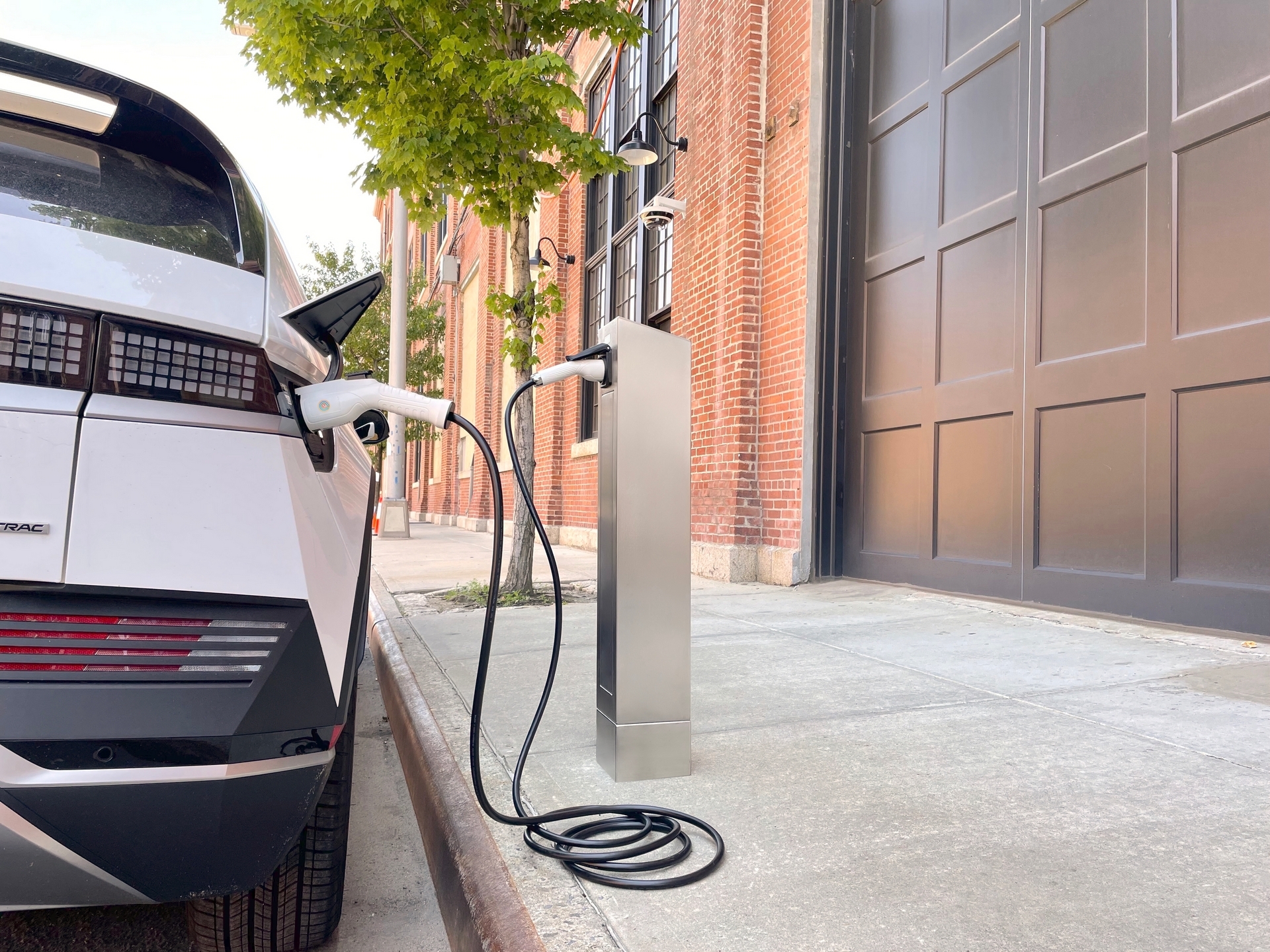Hyundai Cradle, the car manufacturer’s center for technologies including mobility services and smart cities, has announced a partnership with Brooklyn’s Itselectric curbside charging company and the New York City Economic Development Corporation.
The partnership will initially encompass a pilot program using Itselectric’s “user-friendly” charge posts complete with a fully detachable charging cord and a simple, inoffensive design. Itselectric ultimately wants to use its curbside chargers to accelerate the adoption of electric vehicles by providing communities with scalable and simple charging options that integrate seamlessly into neighborhoods.
The partnership between Hyundai Cradle and Itselectric comes after the charging company was named as a finalist in the carmaker’s EV Open Innovation Challenge. The pilot program will initially see six charging posts deployed at the Brooklyn Army Terminal and Steiner Studios in spring 2023. These charging posts will be tested by EV drivers in the local area.

“Hyundai CRADLE Silicon Valley is excited to be launching this pilot program in collaboration with HMNA and itselectric,” senior vice president and head of Hyundai Cradle Silicon Valley Henry Chung said. “Curbside charging is an important part of the EV charging ecosystem that can provide access for those who rely on public charging, and we look forward to exploring this opportunity.”
Read: Hyundai Launches New Evolve+ Subscription Program For Kona EV And Ioniq 5
A unique aspect of Itselectric’s charging solution is the fact that the company partners with U.S. cities to install, operate and maintain the chargers at no cost to the city. Additionally, property owners where the charging spots are located are able to earn passive income with them.
“The team at Hyundai has been incredibly supportive and we could not have envisioned a better place than Brooklyn, where it all began, to put our first chargers into the ground,” added co-founder and chief executive of Itselectric Nathan King. “The United States has high goals for electric vehicle adoption, but the country is not currently prepared for what this means in terms of accessible charging. Our technology is specifically built for cities to ensure that every community – no matter the median income or prevalence of driveways and garages – has access to clean transportation.”








